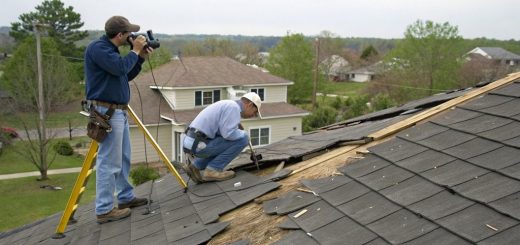Baby Teeth: Why Are They Falling Out?
The abrupt loss of a child’s teeth can be alarming for both parents and their young charges. Do your best to stay calm if this is the case. It’s actually something to be happy about! Primary teeth, or baby teeth, are the first teeth to erupt in a person’s mouth after birth. They will be replaced by permanent teeth at some point in the future because their purpose is temporary.
Primary teeth, often known as baby teeth, begin to loosen and fall out around age 6, making way for permanent teeth. Yet, there are situations in which this is delayed by up to a year. How about we talk about how teething usually go in kids? We will also discuss some potential causes of a tooth eruption delay.

Baby Teeth 101
The two front teeth on the bottom of the mouth (the lower central incisors) and the two front teeth on the top of the mouth (the upper central incisors) are usually the first baby teeth to fall out, followed by the lateral incisors, the first molars, the canines, and the second molars.
If a kid experiences dental decay or is involved in an accident that causes the loss of a baby tooth at an early age, a permanent tooth may shift into an empty space. This might put pressure on the permanent teeth and cause them to erupt in an improper position. In most cases, the permanent teeth will emit through the gums and push the baby teeth out of the mouth.
When Does it Start to Fall Out?
By the age of six, your child’s baby teeth, also known as primary teeth, will typically begin to go loose. This process continues for several years until the ages of 10-12, when all primary teeth are finally lost. The two front teeth in the front of the mouth, either the top or the bottom, are usually the first baby teeth to fall out. After them come the lateral incisors, the first molars, the canines, and finally, the second molars (in that order).
Having said that, this process can be held up for as long as a year at times. Hence, there is typically no cause for concern if it has been a few months since your child’s sixth birthday and they still haven’t lost any of their first teeth. This is typically normal. Naturally, the answers to any queries or concerns that you might have can be provided by your pediatric dentist.
Is it possible that your child is losing their teeth abnormally fast? It is possible. The process of resorption involves the baby teeth remaining in place until they are pushed out of the mouth by the permanent tooth that replaces them. Yet, there are situations in which your child can lose a tooth prematurely due to tooth decay, an accident, or even because they wiggled a tooth that was only slightly loose. If a tooth is knocked out before its natural time, the space left behind may be filled by a permanent tooth. This can lead to more permanent teeth coming in crookedly, leading to crowding of the teeth.
Delayed tooth eruption happens when a tooth emerges later than usual. Premature birth, low birth weight, inadequate nutrition, and heredity are all possible causes of delayed newborn teething. Syndromes and developmental or endocrine abnormalities may also cause tooth eruption to be delayed. A pediatric dentist, like the pediatric dentist in Herndon, VA, can tell you if your child’s teething schedule is acceptable for their developmental stage. They can assist you in the whole process and reduce your worry.
What Should you do as a Parent?
It is critical to begin practicing basic dental hygiene when your child’s first baby tooth appears. As your child’s baby teeth start to fall out, emphasize the need for regular dental care. As an example:
- Make it a habit for your child to clean their teeth at least twice daily. As needed, supervise and offer help.
- Every day, assist your child in cleaning between their teeth.
- Adopt a nutritious diet and minimize your intake of sugary foods and beverages.
- Make regular dentist appointments for your youngster.
You may help your child’s permanent teeth survive a lifetime by providing adequate care.
What Is the Importance of Infant Teeth Care?
While baby teeth are only in the mouth briefly, they play an essential role like:
- Make room for their permanent counterparts.
- Return the face to its original state.
- Contribute to the development of clear speaking.
- Assist in achieving good nutrition
- Assist in giving permanent teeth a healthy start
Children should generally see a dentist by age one or within six months after the eruption of their first tooth.
Conclusion
Baby teeth, also known as primary teeth, usually appear between 6 and 12 months. Many youngsters will have a full mouth of baby teeth by age three. This timescale, however, can vary greatly. A minor delay is usually not caused for concern.
Bring your child to the dentist if they do not have any baby teeth by 12 months. They should see a dentist if their remaining baby teeth have yet to erupt by age four. If your dentist does not take steps to alleviate your child’s worries, you should look for another dentist. Your child must have an excellent dental experience during childhood, so they do not have a continuing phobia of oral health care providers.



















